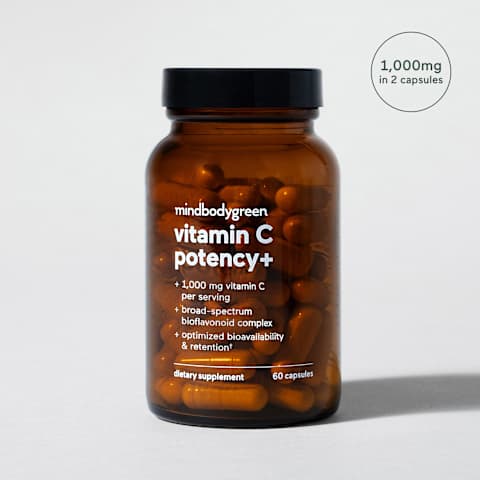Advertisement
This Nutrient Improves Work Motivation & Focus In Young Adults, According to Research


In a world full of constant stimulation, sitting down and getting something done without turning off your phone and canceling out distracting sounds can be hard. Still, even if you've eliminated all possible distractions and plop yourself down in front of a blank white wall, maintaining attention on one task isn't always easy.
Sure, coffee may provide you with an energy boost, but that doesn't always correlate with motivation to start a task, much less stay focused for extended periods of time. However, research shows that a lack of sustained attention may actually be linked to inadequate levels of a particular essential nutrient.
The link between vitamin C and focus.
According to research from the European Journal of Nutrition1, an inadequate level of vitamin C in your body (i.e., blood) "is related to a low level of mental vitality" in young adults aged 20 to 39. What does "mental vitality" mean, exactly? In this study, they're referring to a few different factors: work motivation, attentional focus, and overall cognitive performance on tasks requiring sustained attention.
In this double-blind, placebo-controlled trial, researchers concluded that "Compared to the placebo, vitamin C supplementation significantly increased attention and work absorption with distinct tendency of improvement on fatigue and comprehensive work engagement."* The young adults received a daily vitamin C dose of 1,000 mg over four weeks to net these impressive gains.
More specifically, the participants taking a daily vitamin C supplement performed better on a color-word test, demonstrating longer attention capacity and increased processing speed than their counterparts who didn't take 1,000 mg of vitamin C.*
In this particular study, mood levels seemed unaffected by vitamin C supplementation. However, a 2018 study2 begs to differ—this study demonstrated that people with high concentrations of vitamin C in their blood were more likely to have a better mood compared to those with lower plasma levels (i.e., poor vitamin C status). Those who had sufficient levels of vitamin C were also less likely to report feelings of sadness, anger, and confusion.
Some nutrients are bountiful in food sources and easily absorbed into the body, leading to a small number of the population falling short of their daily dose. This isn't the case for vitamin C—studies show 46% of U.S. adults aren't consuming3 a mere 60 to 75 milligrams of vitamin C from their daily diet. So if you have trouble focusing, you may be part of the near 50% of U.S. adults that could benefit from a vitamin C supplement.
To sum up: Inadequate levels of vitamin C are linked to a lower level of mental vitality, according to research. Supplementing with a meaningful daily dose of vitamin C effectively increased work motivation and attentional focus and contributed to better performance on cognitive tasks requiring sustained attention.* Other research demonstrates evidence that a healthy vitamin C status (i.e., blood levels of the nutrient) may help to support elevated mood as well.*
The takeaway.
If you have trouble focusing on tasks no matter how much you limit obvious distractions or how many cups of joe you consume, you may want to test your vitamin C levels. Research shows that inadequate levels of vitamin C have been linked to a lower level of mental vitality, but luckily, supplementation has been shown to help—here's how much vitamin C you need daily and how to get it.*
